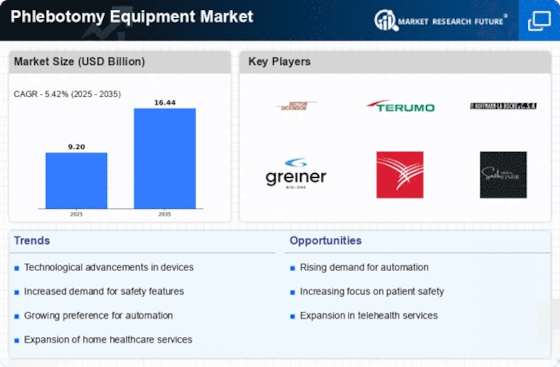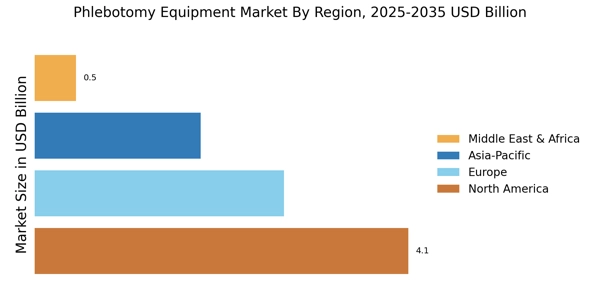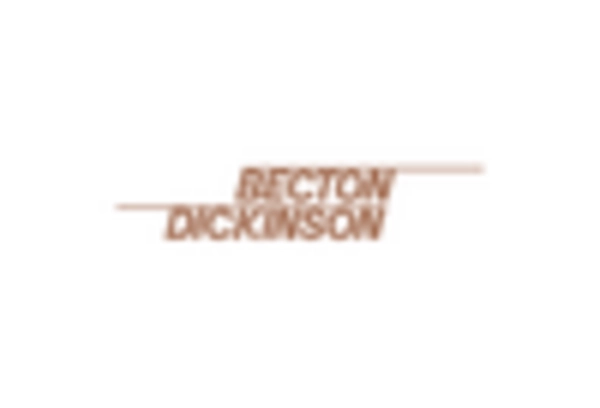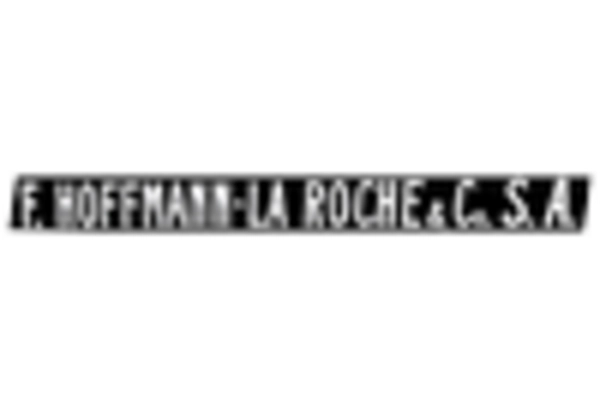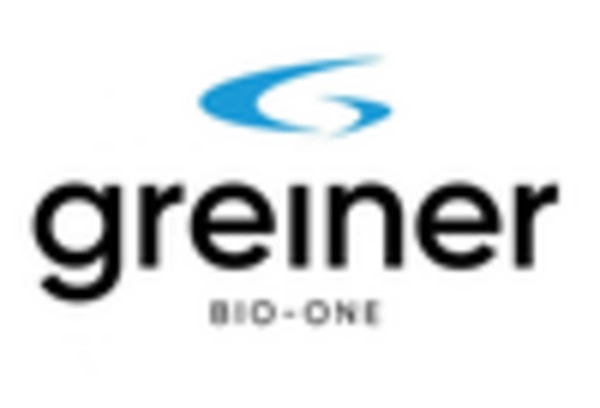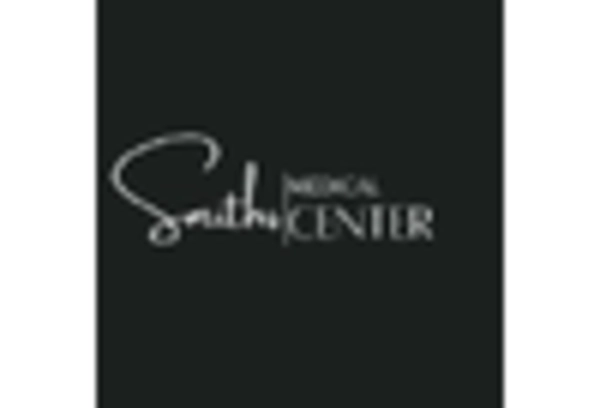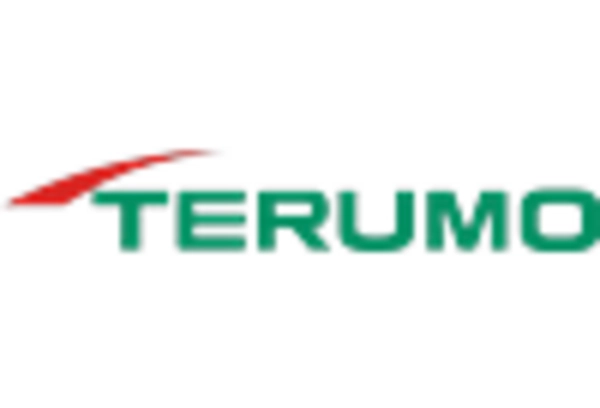Regulatory Standards and Compliance
Regulatory standards and compliance requirements are increasingly shaping the Phlebotomy Equipment Market. Governments and health organizations are implementing stringent guidelines to ensure the safety and efficacy of medical devices, including phlebotomy equipment. Compliance with these regulations is essential for manufacturers seeking to enter or expand within the market. As healthcare providers prioritize patient safety and quality assurance, the demand for compliant phlebotomy equipment is likely to increase. This trend suggests that manufacturers must invest in research and development to meet regulatory standards while also innovating to stay competitive. The emphasis on compliance is expected to drive growth in the Phlebotomy Equipment Market, as stakeholders seek reliable and safe solutions for blood collection.
Rising Incidence of Chronic Diseases
The increasing prevalence of chronic diseases such as diabetes, cardiovascular disorders, and cancer is a primary driver of the Phlebotomy Equipment Market. As these conditions necessitate regular blood testing and monitoring, healthcare facilities are investing in advanced phlebotomy equipment to enhance patient care. According to recent statistics, the number of individuals diagnosed with chronic diseases is projected to rise significantly, leading to a corresponding increase in the demand for phlebotomy services. This trend indicates that healthcare providers are likely to prioritize the acquisition of efficient and reliable phlebotomy equipment to meet the growing needs of their patient populations. Consequently, the Phlebotomy Equipment Market is expected to experience substantial growth as healthcare systems adapt to these changing dynamics.
Growing Focus on Preventive Healthcare
The Phlebotomy Equipment Industry. As healthcare systems emphasize early detection and management of diseases, the demand for routine blood tests is increasing. This trend is prompting healthcare providers to invest in high-quality phlebotomy equipment to facilitate timely and accurate testing. Market data indicates that the preventive healthcare sector is expanding, with a growing number of individuals seeking regular health check-ups. This proactive approach to health management is likely to drive the demand for phlebotomy services, thereby boosting the Phlebotomy Equipment Market. As a result, manufacturers are expected to innovate and enhance their product offerings to cater to this evolving market landscape.
Increasing Number of Healthcare Facilities
The expansion of healthcare facilities, including hospitals, clinics, and diagnostic laboratories, is a significant driver of the Phlebotomy Equipment Market. As the number of healthcare establishments rises, so does the demand for phlebotomy services and equipment. This trend is particularly evident in emerging markets, where investments in healthcare infrastructure are on the rise. The establishment of new healthcare facilities necessitates the procurement of phlebotomy equipment to ensure efficient blood collection and testing processes. Consequently, the Phlebotomy Equipment Market is poised for growth as healthcare providers seek to equip their facilities with the latest phlebotomy technologies. This expansion is likely to create new opportunities for manufacturers and suppliers in the market.
Technological Innovations in Phlebotomy Equipment
Technological advancements play a crucial role in shaping the Phlebotomy Equipment Market. Innovations such as automated blood collection systems, safety-engineered devices, and advanced blood collection tubes are enhancing the efficiency and safety of phlebotomy procedures. These innovations not only reduce the risk of needlestick injuries but also improve the overall patient experience. The introduction of smart devices that integrate with electronic health records is further streamlining the blood collection process. As healthcare providers increasingly adopt these technologies, the demand for modern phlebotomy equipment is likely to surge. This trend suggests that the Phlebotomy Equipment Market will continue to evolve, driven by the need for improved patient outcomes and operational efficiencies.


